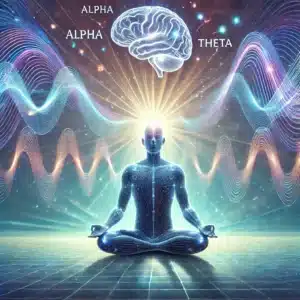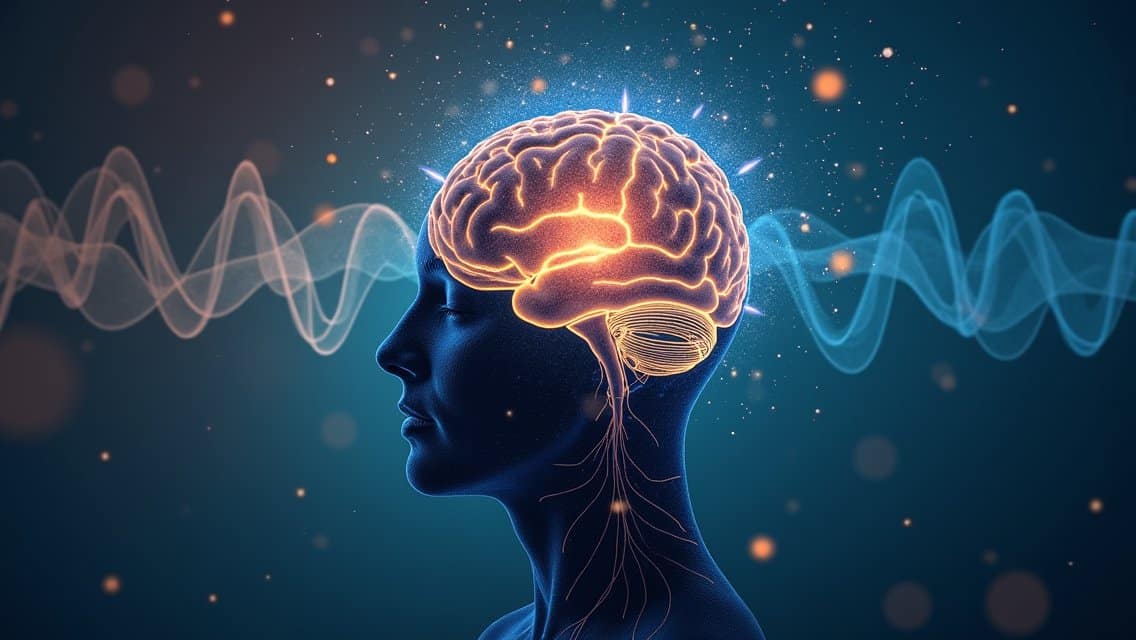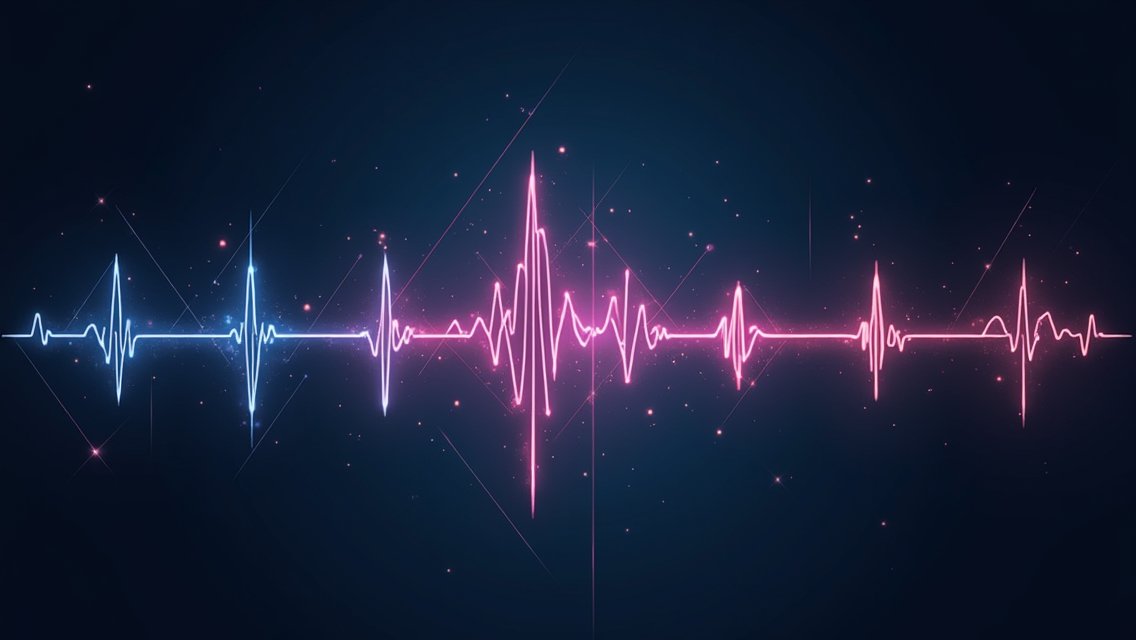Music is part of meditation and music associates with brainwaves and frequency. In meditation, when we listen to music, brainwaves and frequency are changing in our brain from one brainwave to another. There is a deeper connection between brain waves and meditation through meditation music. There are five brainwaves: Delta, Theta, Alpha, Beta, Gamma. Out of these five brainwaves, Alpha and Theta brain waves are more important for meditation. Here let’s have a deeper understanding of what brain waves and frequency we need for meditation.
Useful Articles: 1. Different Types of Brainwaves – Effects and Function of the Brain
In the technological era, you can use meditation brain waves devices even for deep transcendental meditation for calmness. You can also apply Gamma brain waves for deep meditation. How to change brain waves at will when you practice meditation? You can easily change brain waves from one brain waves to another when you go deep in meditation.
What is Meditation?
For your knowledge and practical information, you must know the real meaning and the purpose of practicing meditation. Meditation is a mental practice that involves focusing the mind to achieve a state of relaxation, awareness, and mental clarity.
It often includes techniques like deep breathing, concentration on a specific object or thought, and mindfulness of the present moment.
The goal of meditation is to reduce stress, improve emotional well-being, and enhance self-awareness by calming the mind and cultivating a sense of inner peace.
What is Alpha Brain Waves?
There are five brainwaves. Among those five brainwaves, Alpha brainwaves are moderate-frequency brainwaves, typically ranging from 8 to 12 Hz, associated with a relaxed but awake state.
They are most present when you’re calm, such as during light meditation, daydreaming, or when you’re in a restful but alert state.
Alpha waves help promote mental coordination, calmness, and increased learning ability by balancing the mind between focused thinking and relaxation.
Useful Articles: 1. Meditation and Sleep a Path Way to Restful Night
What is Theta Brain Waves?
Theta brainwaves range from 4 to 8 Hz and are associated with deep relaxation, creativity, and light sleep, particularly in the dreaming phase. They occur during states of deep meditation, daydreaming, and moments of heightened creativity or intuition. Theta waves allow access to the subconscious mind and are linked to emotional processing, healing, and insights.
What Brain Waves We Need for Meditation?
All though there are five brainwaves, for meditation, we need Alpha waves and Theta waves. The brain waves most commonly associated with meditation is the Alpha wave (8-12 Hz). Alpha waves are linked to a state of relaxed, calm awareness, making them ideal for meditation, mindfulness, and peaceful focus.

However, Theta waves (4-8 Hz) also play a significant role, especially in deeper meditative states. Theta waves are associated with deep relaxation, creativity, and even the border between wakefulness and sleep. Advanced meditators may experience an increase in Theta wave activity during their practice.
There are different meditation techniques and both Alpha and Theta waves can be cultivated through them which are promoting relaxation and a sense of inner calm.
Conclusion
Understanding the specific brainwaves and frequencies that enhance meditation can significantly improve your practice.
Alpha and Theta waves are particularly beneficial, promoting relaxation and deeper states of awareness.
By focusing on these frequencies, meditators can access heightened creativity and emotional balance.
Incorporating techniques that encourage these brainwave patterns can lead to a more fulfilling meditation experience.
Ultimately, harnessing the power of brainwaves can deepen your connection to mindfulness and well-being.


